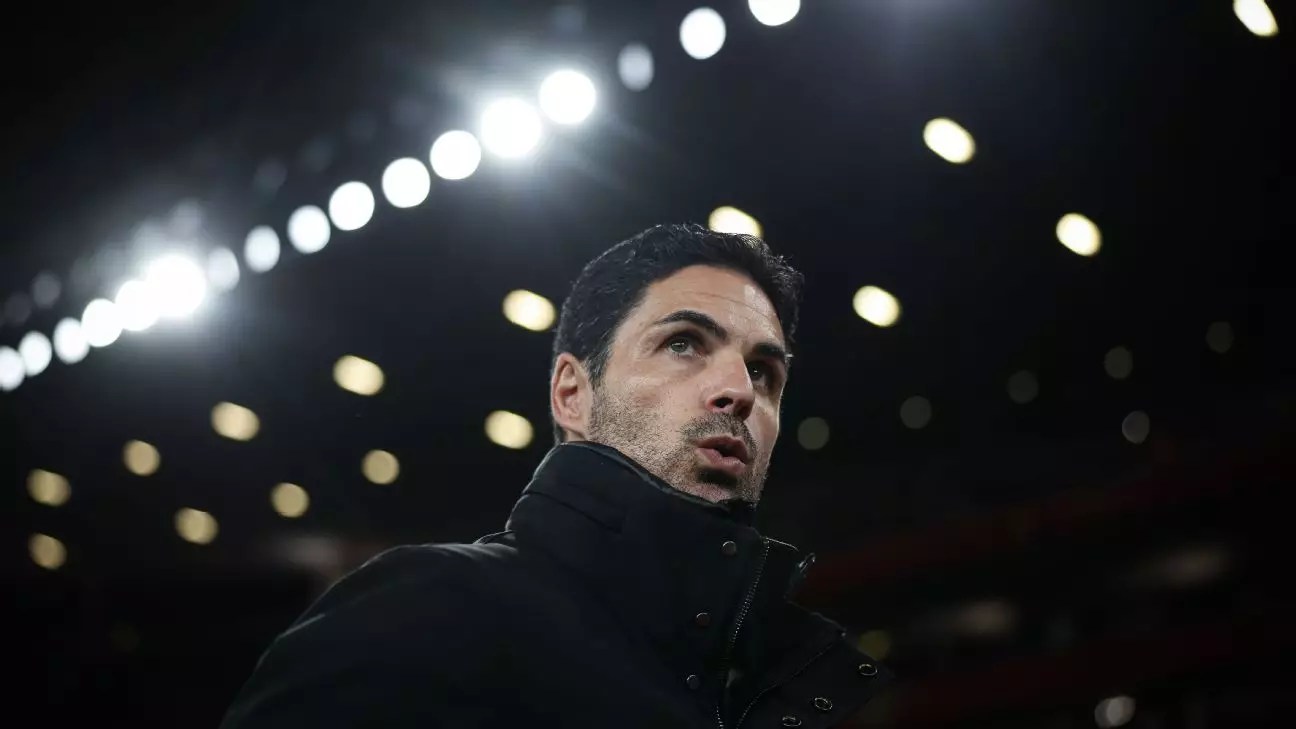As the Premier League season progresses, Arsenal finds itself in a compelling narrative, vying for its first league title in nearly two decades. Under the stewardship of Mikel Arteta, the Gunners have shown promise but still face challenges that go beyond simply adding new players. With a six-point deficit to league leaders Liverpool—who also have a game in hand—talk of January reinforcements has intensified. However, Arteta’s mindset reflects a profound understanding that success requires more than just new signings; it necessitates consistency, development, and refined execution.
While supporters clamor for marquee signings like Benjamin Sesko, Alexander Isak, and Viktor Gyökeres, Arteta insists that any potential signing must integrate seamlessly into the squad and make an immediate impact. His comments point to a broader philosophy: that victory in the intense battleground of the Premier League hinges on collective synergy and persistent effort rather than a single game-changing transfer.
It’s vital to examine the stats to grasp why Arteta feels confident with his current roster. Arsenal scored an impressive 114 goals in the 2024 season, averaging 2.28 goals per game—the club’s best performance in goal-scoring since 1963. Given this offensive record, the question arises: Is a new forward truly necessary? Arteta’s assertion that “signing somebody is not enough” resonates strongly in the context of their scoring capacity.
However, statistics can often be misleading. While the numbers show promise, critical analysis must delve deeper into the context of those goals. Were the goals scored against top-tier teams, or were they products of matchups against weaker defenses? This distinction is crucial because it indicates whether Arsenal can replicate their scoring frequency under the pressure of fierce title competition.
Fundamentally, Arteta emphasizes the need for consistency. Despite having the statistics on his side, Arsenal has experienced situations where they fell short in crucial matches—the very essence of being ‘so close’ yet unable to clinch a major trophy. Small details can often define the outcome in tightly contested matches. In this regard, Arteta’s focus on fine-tuning and achieving a higher level of performance is both poignant and necessary.
Moreover, the winter transfer window presents its own set of challenges. With a more limited pool of accessible talent compared to the summer transfer window, aspiration must be balanced with realism. Arteta acknowledged the limitations while maintaining that the team’s trajectory remains promising. This delicate balance of ambition and pragmatism is what sets apart truly successful clubs.
Beyond the immediate implications of results and transfers, Arteta must also navigate the complexities regarding the contracts of key players like Jorginho and Thomas Partey, both of whom are on the brink of free agency. The duality of focusing on current performances while also negotiating the future can easily lead to distractions. Arteta’s communication with the players shows foresight; preserving team integrity is paramount.
He seeks to foster an environment where personal ambitions do not overshadow the collective goal. The dynamics of these situations can be extremely delicate, and sensitive management is key to ensuring that player uncertainties do not derail the team’s focus on a title challenge.
On a practical note, player fitness plays a critical role in Arsenal’s pursuit of silverware. The potential return of Kai Havertz and Ben White signifies a vital bolstering of resources as the season wears on. Arteta’s cautious optimism regarding White’s knee recovery demonstrates an understanding of the endurance required for both players and the strategy needed to deploy them effectively in the title race.
Arsenal’s hopes for Premier League glory are intricately tied to a multitude of factors. While the desire for new signings is understandable, Mikel Arteta’s insistence on drawing from the strengths of the current squad underscores a critical aspect of football: that chemistry, focus, and continuous improvement can often be more valuable than any single player, no matter how talented. With persistence and resolve, Arsenal may yet see its long-awaited return to the pinnacle of English football.


Leave a Reply